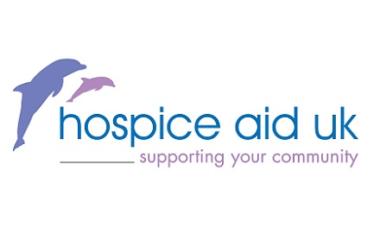A hospice charity raised £1.45m in three years but spent just £79,000 on beneficiaries, according to a Charity Commission inquiry report published last month.
The commission found that Kent-based Hospice Aid UK, entered into a seven-year agreement with London-based fundraising agency Euro DM in 2012, and had since spent most of its income on paying that agency. Most of the rest of the income went on governance and staff costs.
Despite the large sums paid to the agency, the charity owed the agency substantial further sums, and was therefore in balance sheet deficit and in danger of insolvency.
Last year the charity had an income of £647,000 and made £30,000 of grants to hospices.
The commission opened an inquiry into the charity in August 2014. In a statement released last month the regulator said the charity had misled the public. It said trustees had shown poor governance and financial management, and had not complied with their legal duties.
The commission required the charity to complete two action plans – one covering governance and management and one covering fundraising. This has resulted in governance savings, a renegotiation of the settlement with the fundraising agency, and a new contract of employment for the chief executive. The next round of marketing material produced on behalf of the charity will now include solicitation statements.
The charity has also negotiated with the fundraising agency to write off £325,000 of the deficit accumulated through fundraising activities conducted under the terms of the agreement. This includes the write off of the loans made by the fundraising agency to the charity which were recorded as a debt on the charity’s balance sheet.
The charity has also negotiated reductions in the costs that will be incurred for the remaining term of the agreement. The charity expects to receive approximately £120,000 over the next 3 years as a result.
The commission has also reported its findings about the fundraising agency to the fundraising regulator.
Hospice Aid UK is the latest of a series of charities to be investigated after signing unfair fundraising agreements.
Hospice Aid UK issued a statement in which it had been forced into signing a direct mail agreement due to a campaign against it by hospice umbrella body Hospice UK, previously known as Help the Hospices. It is currently conducting a judicial review over Hospice UK’s decision to change its name.
Hospice UK said it completely rejected the Hospice Aid UK allegations.
Trustee misappropriated more than £400,000
The founding trustee of a spaniel rescue charity misappropriated more than £400,000 in legacies, according to a Charity Commission inquiry report published last month.
The commission opened an investigation into Cavalier King Charles Spaniel Rescue Welfare in April 2013 after receiving a complaint from the executor of a will.
It found that the charity had received two legacies of around £382,000 and £45,000 but these had been placed in bank accounts belonging to the trustee and another person. The commission ruled that these funds had been “misappropriated for personal benefit”. It froze six bank accounts and £420,000 has since been recovered.
Jedi temple 'not a religion'
The Charity Commission has said it will not register the Temple of the Jedi Order as a charity because Jediism is not a religion.
The temple (TOTJO) was set up to promote Jediism, a belief system based on the Star Wars films, as well as other world beliefs.
But the commission concluded that “Jediism, as promoted by the Temple of the Jedi Order, is not a religion and does not promote moral or ethical improvement, for the purposes of charity law in England and Wales”.
In its decision the commission said: “The commission considers that there is insufficient evidence that Jediism and the Jedi Doctrine as promoted by TOTJO is a sufficiently structured, organised or integrated system of belief to constitute a religion.
“There is insufficient evidence of an objective understanding of Jediism as opposed to a self-defining system which may be pursued outside the confines of a religion and in a secular manner.
“It comprises a loose framework of ideas with some common ground which individuals may interpret as they see fit. In particular, it is not obligatory to interpret and follow the Jedi Doctrine as a religion.”








